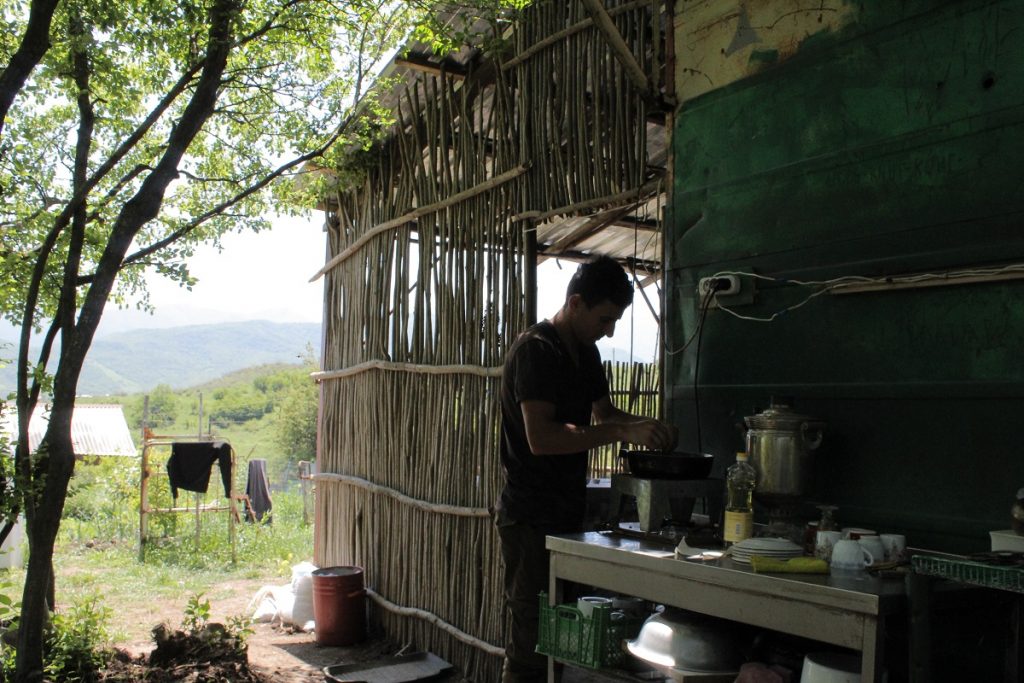First time in Karabakh: travel notes of a Yerevani journalist
These stories of life in the unrecognized Nagorno-Karabakh Republic are told by journalist Diana Gasparyan who went there for the first time to meet local residents and learn first-hand what is happening there after the second Karabakh war. During the trip, she kept a travel diary for JAMnews.
JAMnews is a publication that tells about the processes in the South Caucasus and about people whose lives are affected by conflicts. Authors and editors from across the region are involved in creating these stories. Many names and place names are controversial between different communities and societies living in a conflict or post-conflict context. When publishing personal blogs, the names and toponyms that are accepted in the author’s society are preserved, but they do not necessarily coincide with the opinions and ideas of JAMnews or its individual employees.
Diana Gasparyan’s travel diary
- Post-war life of displaced residents of Nagorno-Karabakh
- How are Karabakh residents restoring their businesses after the war?
- What’s become of the thousands of refugee families near Karabakh?
At the bus station
“I’m from Badara. My children and I are returning home. You can stay with us. There is almost nothing left of the house, but the children will show you beautiful places – what is still ours”.
Five in the morning. Central bus station of Yerevan. There are surprisingly many people for this hour of the day, all with checkered bags from perestroika times. Men smoke, discuss the “incompetence” of young drivers, women stand apart – they talk about fashion.
– “Excuse me, but how much does a ticket to Stepanakert cost?”, I ask a man standing next to me.
– It is free. Lucky, right? There is almost no homeland, but you can get there for free. Here is the bus. Stay close, otherwise, you don’t seem to understand where you are going.
During the war that began on September 27, 2020 and lasted 44 days, about 90,000 people moved from NK to Armenia. According to the Ministry of Labor and Social Issues of Armenia, most of them left, about 25,000 remained. Every day, free buses run from Yerevan to Stepanakert, which brings back those who left their homes during the days of active hostilities and are now willing to return.
I am not a very good traveler. I knew one thing for sure – I want to talk to people in Artsakh and see everything from the inside. The set soreness “trust only official sources” has not inspired confidence for a long time.
The bus was quiet all the way, a man from Badara, sitting next to me, broke the silence only once when we passed the observation posts in the Lachin corridor:
“There is no place for them [Russian peacekeepers] here. We had to defend this bridge. Why should I show my passport to someone on the way home? (after a pause) Here, eat the candy”.
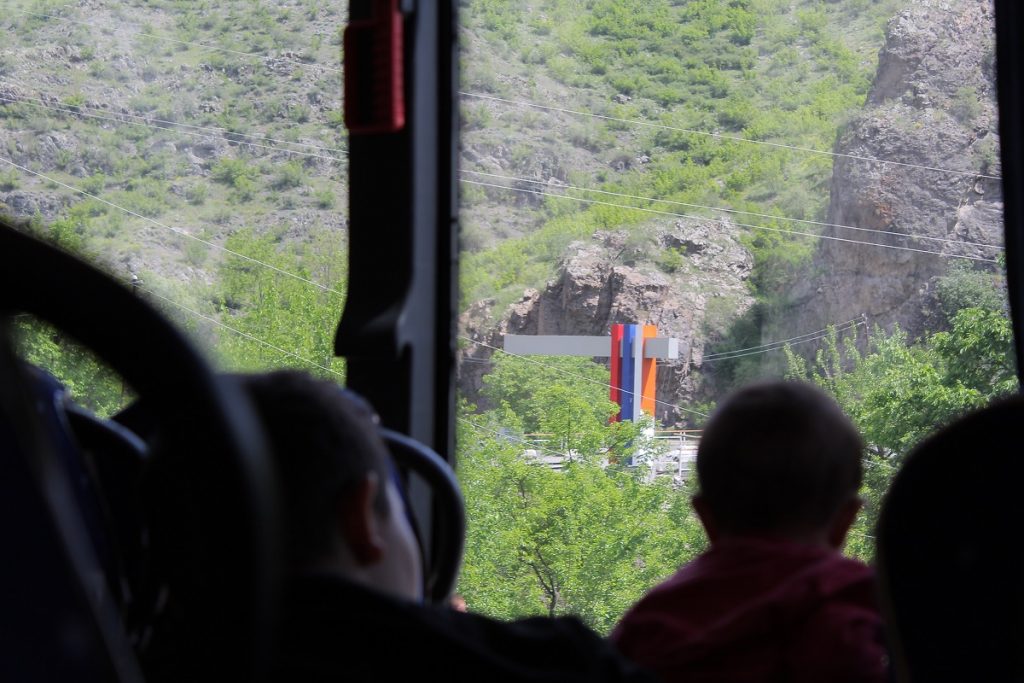
The map of the territory pasted in my notebook tells me – we are approaching Shushi. At the entrance to the city there is an inscription in Azerbaijani “uşa”, along the road there are Russian peacekeepers on the one hand, Azerbaijani soldiers on the other. Their smiling faces force one of the passengers to close the curtain.
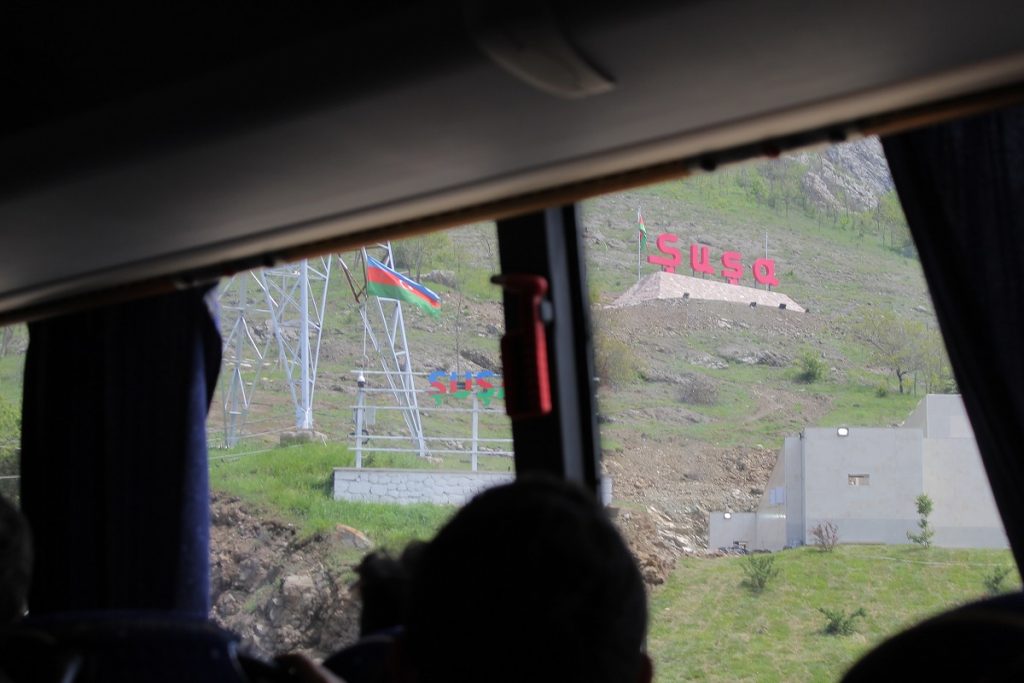
On November 10, 2020, after the leaders of Armenia, Russia and Azerbaijan signed a trilateral statement on a ceasefire in Karabakh, the President of the unrecognized Republic of Artsakh Arayik Harutyunyan stated: “We lost control over the city of Shushi on November 5 partially, and from November 7 – completely. We were forced to agree to end the war. Otherwise, we would have lost all Artsakh”.
“We need to build more to have something to fight for”
– Take off your mask, no one is wearing them here”, a photographer friend who meets me in Stepanakert suggests.
– But what about the coronavirus?
– Consider that during the war everyone was ill. You won’t intimidate anyone with the coronavirus, David laughs.
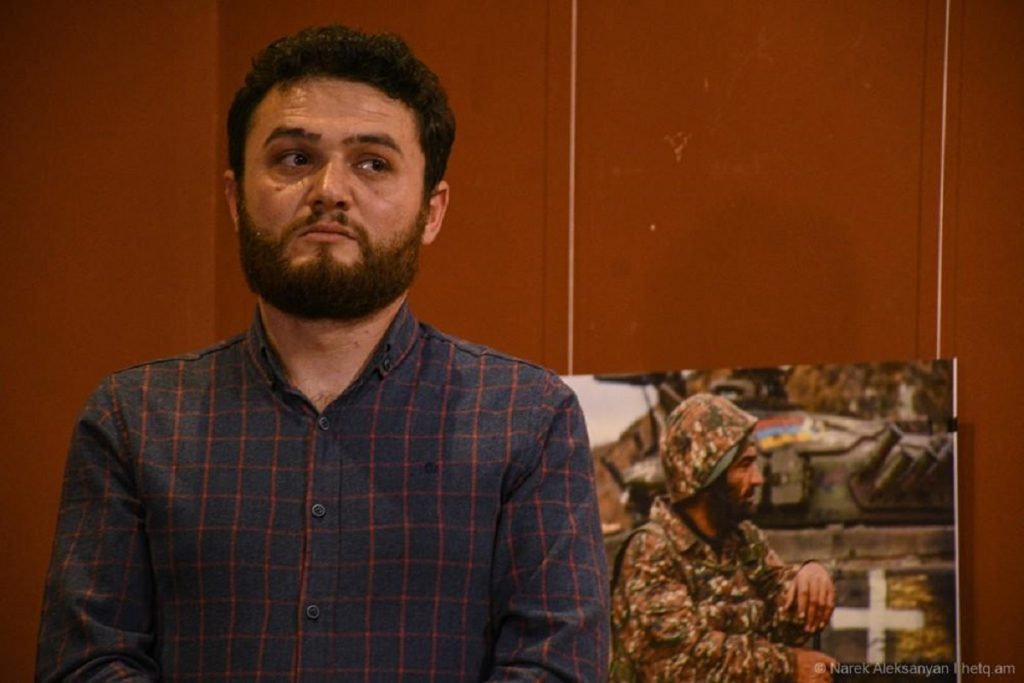
He took part in hostilities, “worked” as a war photographer, recently an exhibition of his works was held. On the way to the hotel, I ask him about his well-being.
– Do you even sleep now? – We became friends after an interview about the exhibition. He then said that he had nightmares and almost never slept at all.
– It’s better now, says David. Take a rest today, you don’t look very good (laughs). In the evening go to a local pub, Azat will meet you. Today it’s my turn to sit with my daughter – David’s daughter is only two months old.
Check in at the hotel. David did not deceive – my appearance leaves much to be desired. I put out a cigarette, call a taxi.
– Hello, I’m in “Bardak”, – I tell the taxi driver the pub address.
– Every day we have a mess, and you say pub (obviously he is pleased with his own joke). Camera? Journalist?, – I nod. – It’s a pity that you can’t film in Shushi. (long pause) Everyone became “Facebook militants” – that’s the reason for the defeat.
David warned me – here everyone has their own opinion, character and history.
I am met by Azat, the owner of “Bardak”.
– What should you pour?
– Bacardi, thanks.
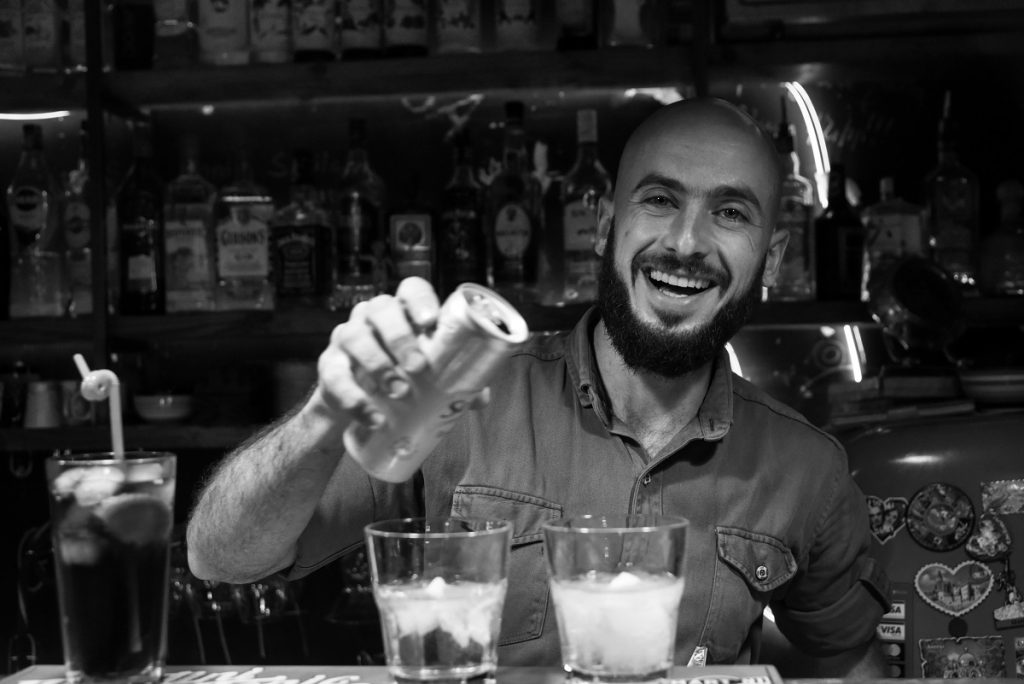
“This sad saga will never end,” sings Zemfira. Such pubs have not been found in Yerevan for a long time (which is a pity): there are old posters, newspapers, cameras “from antiquity”, a dummy of a soldier of the royal guard, even a real tornado shell at the entrance. In a word, “a mess”!
– I decided to open a pub when I was lying in a trench during the 2016 war. In Talysh [this village was badly damaged during the so-called “four-day war” in 2016], the sky is the most beautiful. I then decided that I would start my own business. Then this war happened, I got wounded, ”shows the scar on his cheek, falls silent, finishes his tea.
More about saga
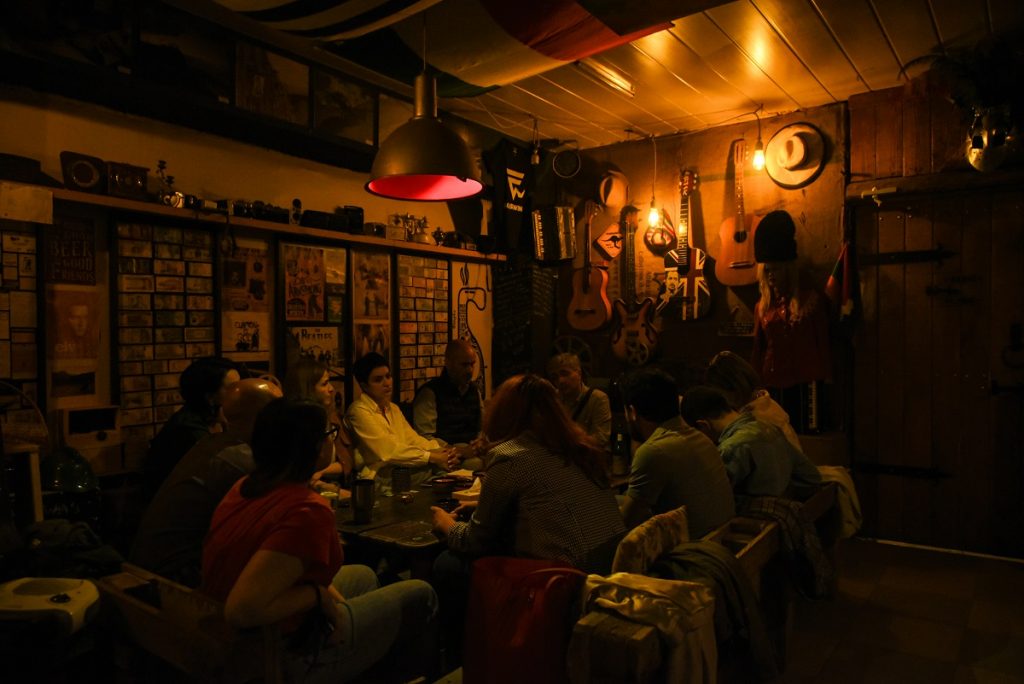
“Many people here do not feel confident in the future,” I interrupt his thoughts.
-If we want, the future will come. We need to create more, so that later there will be something to fight for.
Zemfira is replaced by Led Zeppelin, sometimes the music is interrupted by the conversations of visitors – again about the war.
“I’ll take you to Mkhitarashen tomorrow. You can see Shushi from there”, Azat says goodbye to me. And the “tornado” is still there.
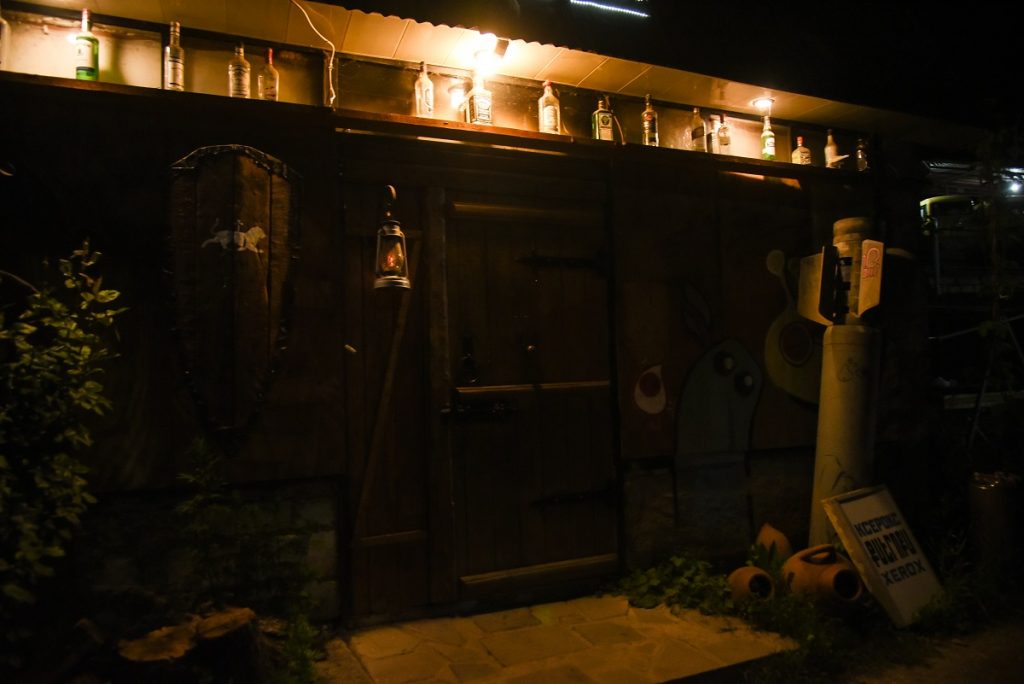
“The ambulance refuses to come here”
In the morning, Azat’s impressive car is waiting for me at the hotel. She is a local celebrity: a large green block, all in patriotic stickers and a flag of Artsakh attached to the roof.
“They will even notice us from our posts, Azat,” I can’t contain my surprise.
-Sit down, we will ride this beauty in Shushi, remember my words.
Mkhitarashen is one of the most affected settlements in the Askeran region. An ammunition depot was located near the village. In the first days of the war, the Azerbaijani side inflicted pinpoint strikes on it. Residents say that now every day they open fire from the direction of Shushi, mainly into the air. Highways here are of general use – Azerbaijani columns pass every day.
“Bring your guest some tea, Azat. Sorry for the mess, I can’t keep up with the children, ”Armine Ohanjanyan, a resident of Mkhitarashen, fusses.
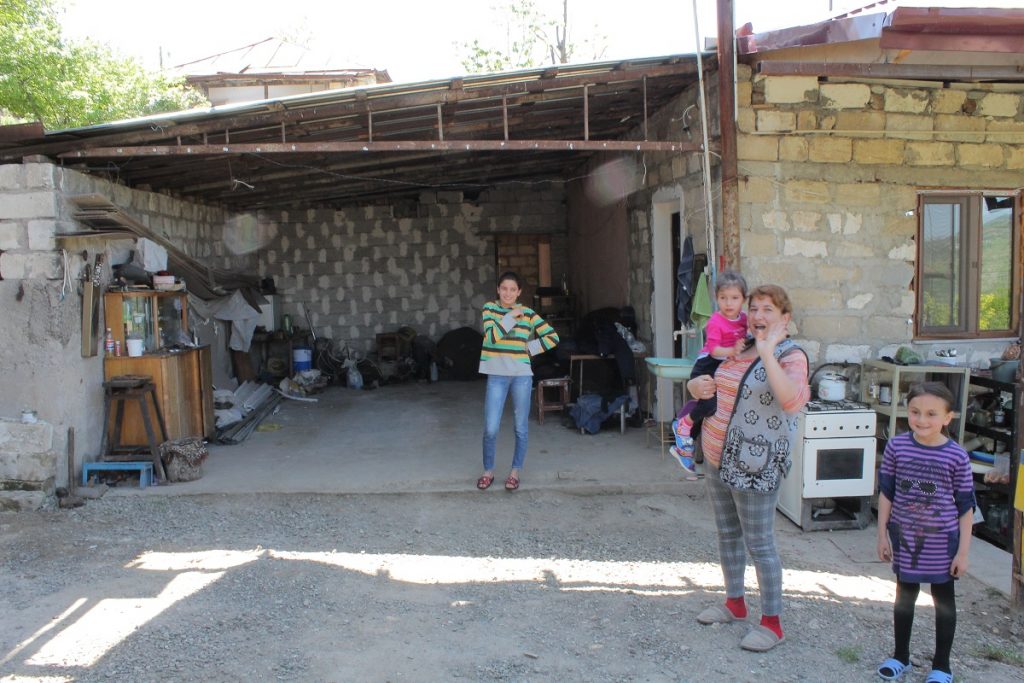
“Isn’t it hard to live here?” I look at Shushi from the windows of the house.
-At first it was unbearable. We wake up every morning to the sounds of namaz. The main thing is that it is not safe here. The ambulance even refuses to go to us. The government is not too interested in us. Children still sleep in their clothes. Azerbaijani posts are about 50 meters away. They steal cattle, slaughter. I cannot let the children go beyond the yard. And what if we plant a vegetable garden, but the harvest is not possible ?, – Armine calls his youngest daughter, who runs out into the yard to fetch the ball.
She understands Azerbaijani. Sometimes he watches Aliyev’s speeches on the Internet: “Aliyev has not calmed down yet. We will never live side by side with them. “
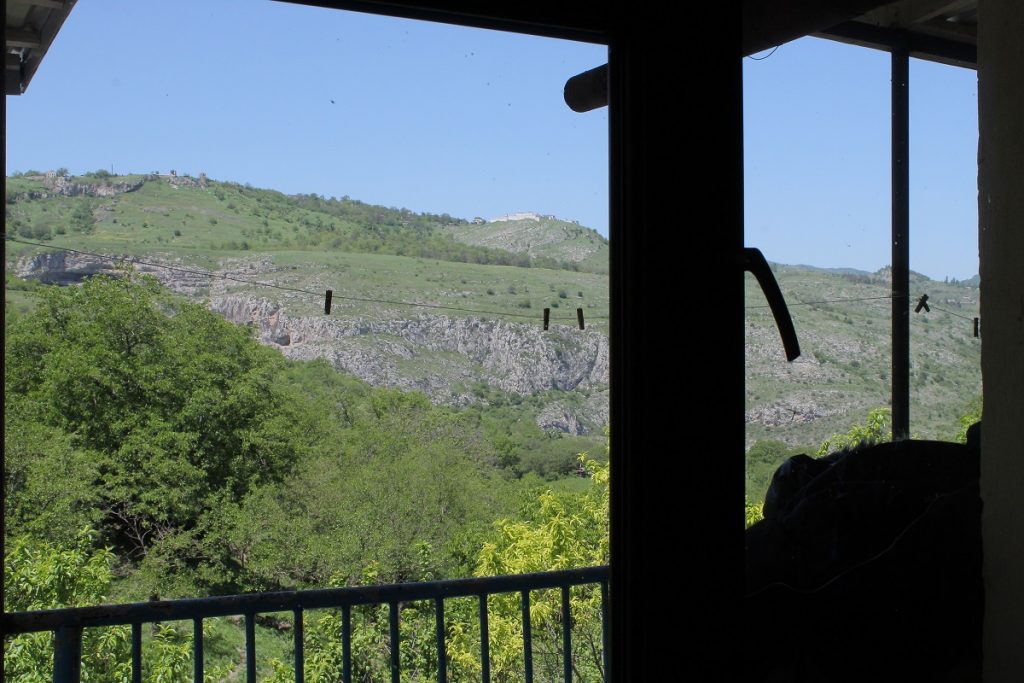
“I’m on my own land. I’m at odds with fear “
“I have a friend who is a participant in the war; he wants to open a wine restaurant in Stepanakert. He left a cafe in Shushi and a leg – in the war, – David notices that he embarrassed me. – Sorry, we are used to expressing it that way, without sarcasm and black humor – no way. “
At the entrance we are met by Ike, he limps quite a bit. If David hadn’t warned, I wouldn’t have noticed. In an apron and with a sad smile, Ike leads us inside. The institution should open one of these days, preparatory work is in full swing. Ike prepares bruschetta. Frowns and turns away when I try to photograph him.
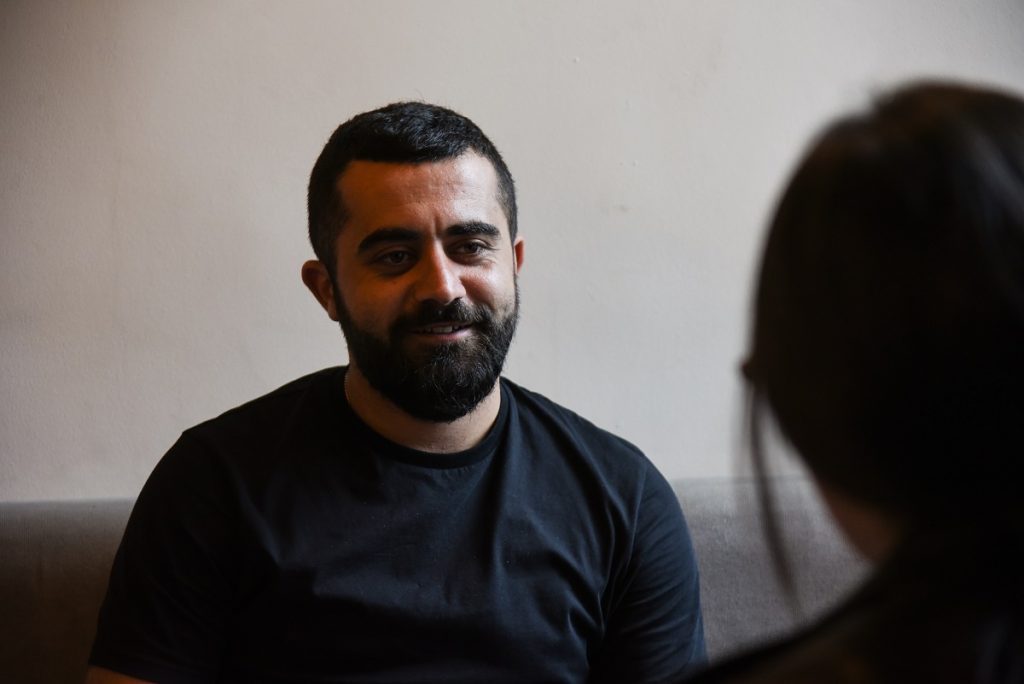
“Before the war I worked as a cook, I had my own establishment in Shushi. Shall we sit down ?, – he sits down with difficulty on the sofa, looks at me and guesses that I myself will not ask about the wound. – I lost my leg in the war. I lay on the battlefield for four hours. I thought I would die. He kept a grenade ready – better to die than to be captured. The guys pulled me out. “
When asked if he sees the future in Artsakh, Hayk replies: “We are a wounded people. But if we leave Artsakh with bleeding wounds, it will be tantamount to betrayal. I’ll stay. There are people who are afraid. But there are concepts: fear, homeland, friendship. I have fear in third place. I’m on my own land. I’m at odds with fear. “
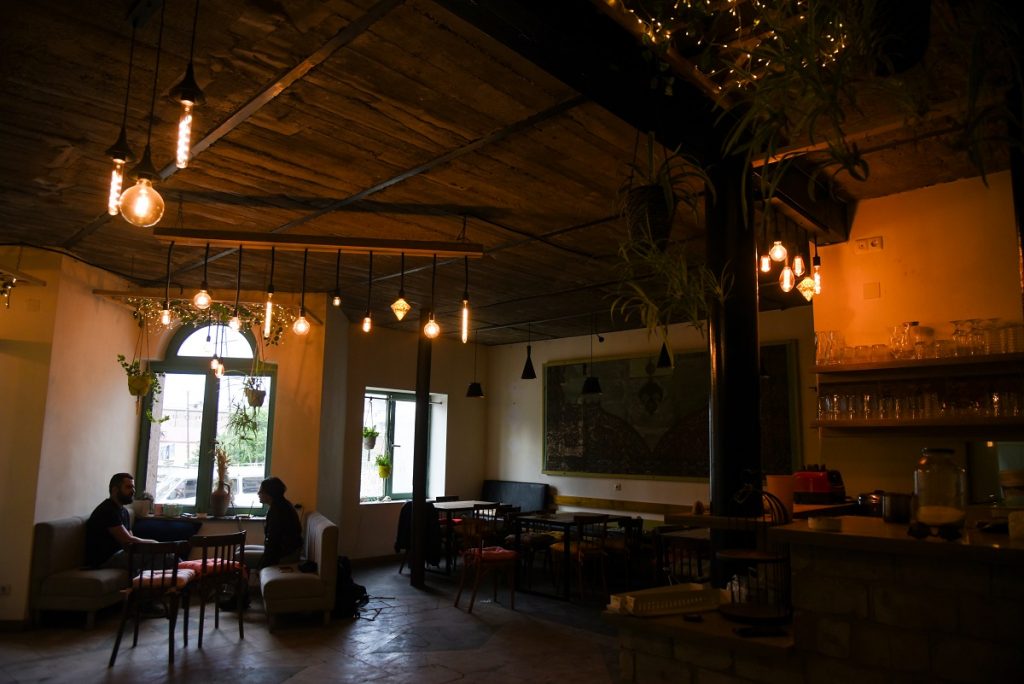
-Hayk, why did we lose ?, – a naive and stupid question (I think), but probably the most important one.
-We weren’t ready. Chaos began. And chaos and panic are the beginning of the end. I do not want to think that our defeat was in the hands of someone, especially “ours.”
On busy and at the same time sad streets I return to the hotel.
Even children play quietly here, and people look out of the windows into nowhere.
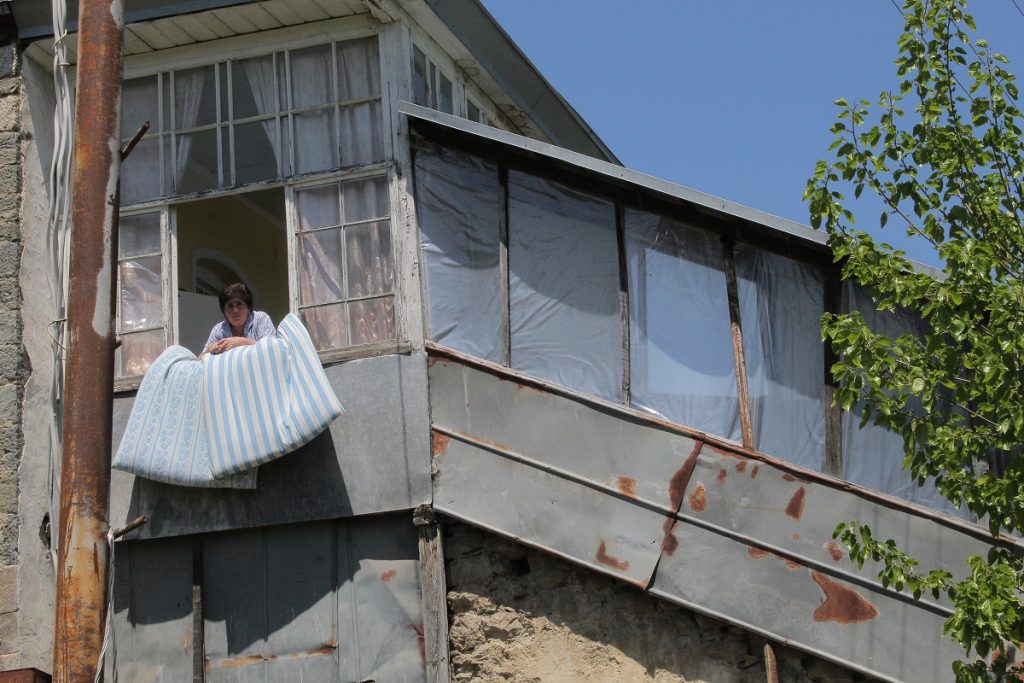
“War turns bad into terrible and good into beautiful”
Day four. I can’t find a taxi to go to Sarushen.
“They are afraid to go here from Stepanakert – it is dangerous. The road is common with the Azerbaijanis. They throw stones. They create emergency situations, ”says Vache on the way to Sarushen.
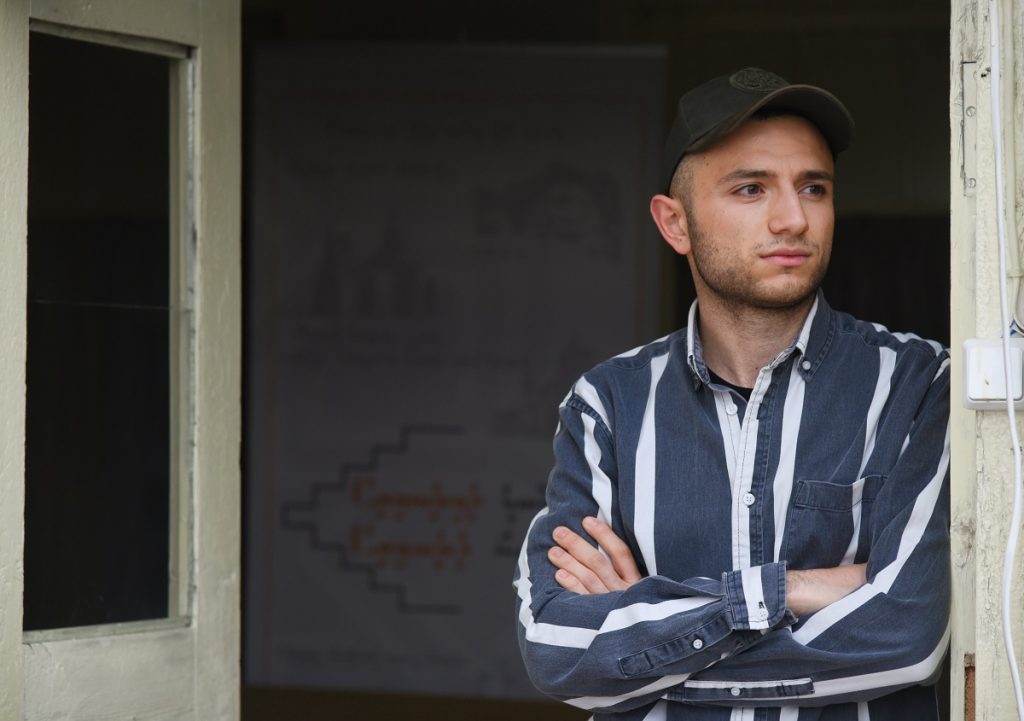
He left his parents in Yerevan and moved to the border village of Askeran region in December 2020. There was no light, no water, no heating.
He founded the “Artsakh Women for Artsakh” initiative. During the war, women from different settlements gathered and sewed ecobags.
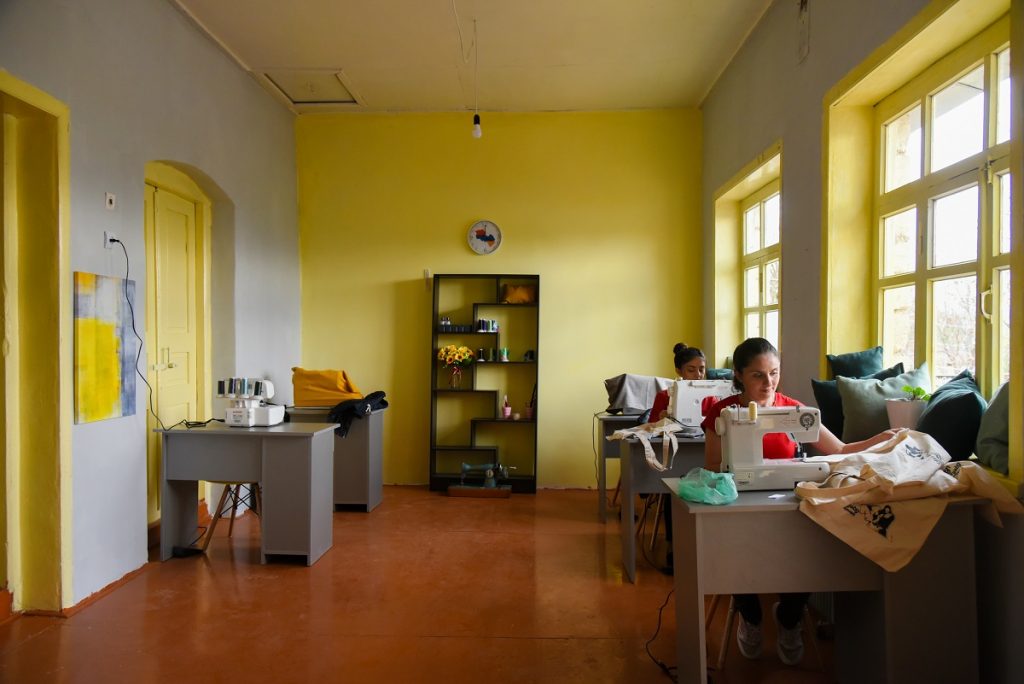
And Vache teaches at the Sarushen training center, which was opened by his own efforts.
He introduces me to his “sheltered” family. Women immediately set the table, children, like little Mowglats, run around the tripod and the camera.
“War turns bad into terrible and good into beautiful. There is more beauty here. I thought I was in control of emotions, – Vache freezes for a moment and points in front of him with his finger. – Look. Do you see the village? Not ours anymore. But some 200 meters. Strangers sometimes come to our yard – to look at their houses at least from afar. I bought binoculars for them. “
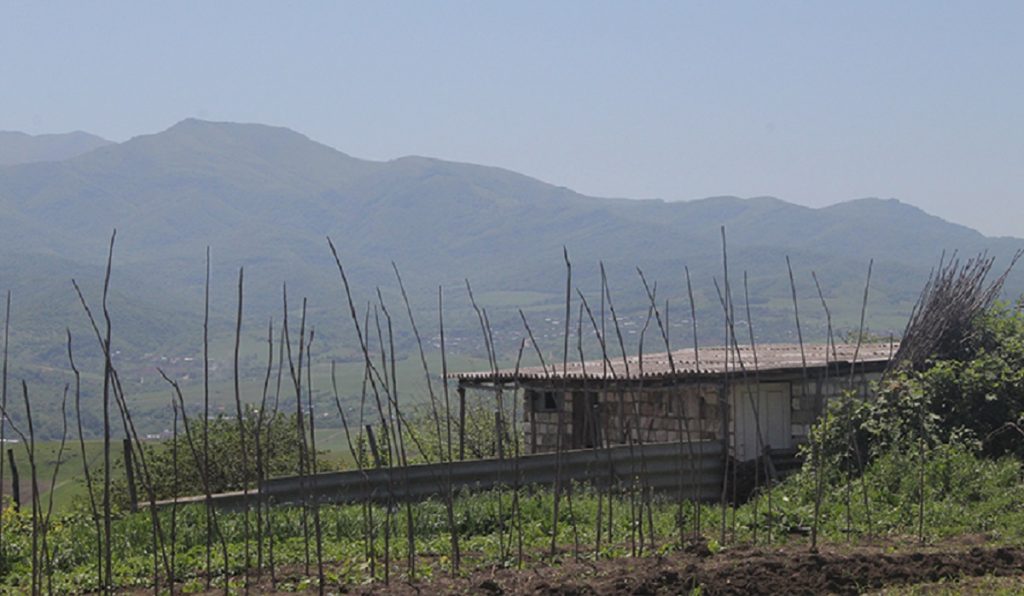
In response to the question, is it not dangerous to live so close to the Azerbaijani posts and near the common road, the hostess of the house smiles, pouring tea for me: “Dangerous. We don’t let children go beyond the yard. Interestingly, young Azerbaijanis are more aggressive. Old people even scold them. Yes, adults know the truth. “
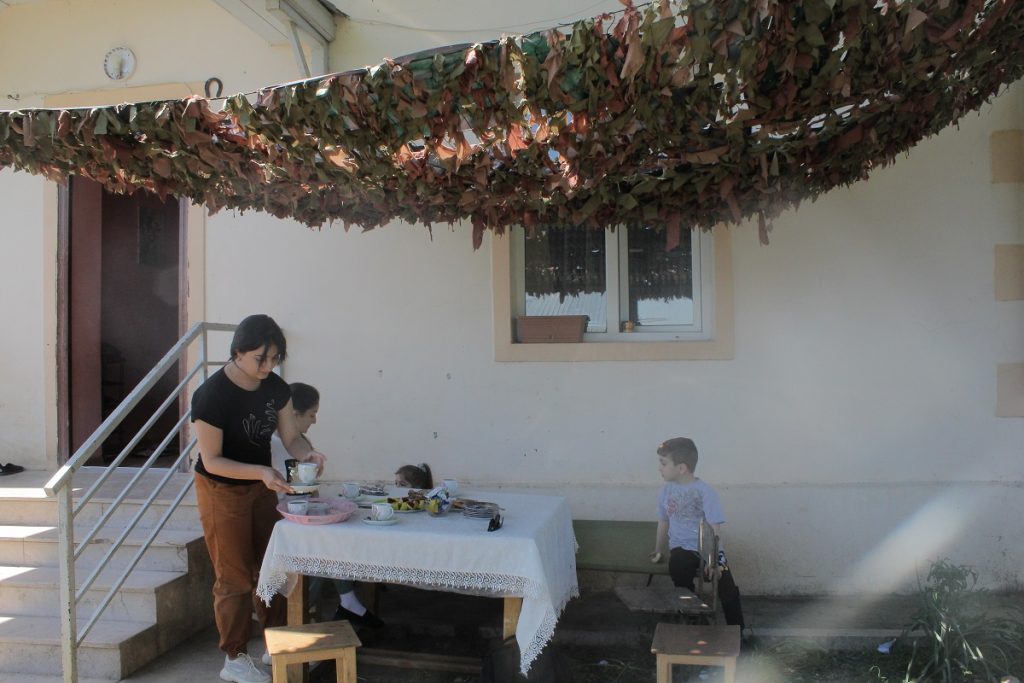
According to the police, on March 25, 2021, Azerbaijanis passing along the Sarushen-Karmir road threw stones at an Armenian’s car. On April 12, the Azerbaijani military opened fire on the residents of Sarushen who worked in the field.
“No normal person should see a war”
The last day, soon – home.
Finally, I meet with blogger Harutyun from Lusadzor, who builds eco-houses and hopes that Artsakh will become a tourist center for Armenia.
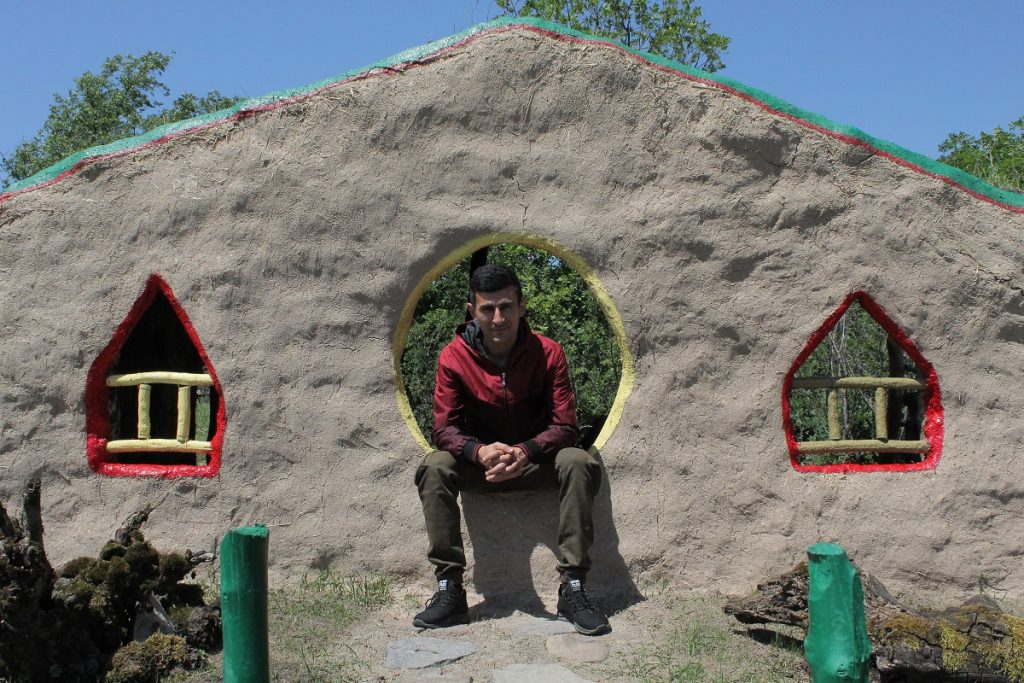
“No normal person should see a war. My brother’s body hasn’t been found yet. He died in the defense of Fizuli, – Harutyun, screwing up his eyes from the sun, collects tsnepak for me, as they call asparagus here. “Scrambled eggs with tsnepak are simply chic.”
Harutyun moved to Artsakh from Stavropol three years ago: “I am Hadryut, as they say here. 100 percent. At first I did not understand why there is so much sadness on the faces of the Artsakh people. Now I realized how the war can strike, it is impossible not to change ”.
Harutyun shows me his rabbits, pigs, pigeons and a dog, with which he never managed to make friends. He watches with kind envy as I stroke a huge shepherd dog.
-Harut, what has the war changed in you?
-Let me cook tsnepak for you better.
